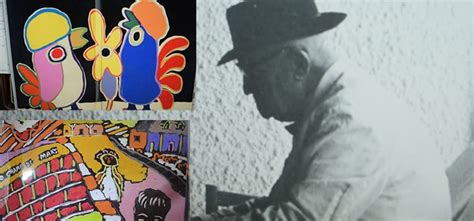A Quote by Samuel Johnson
That distrust which intrudes so often on your mind is a mode of melancholy, which, if it be the business of a wise man to be happy, it is foolish to indulge; and if it be a duty to preserve our faculties entire for their proper use, it is criminal. Suspicion is very often an useless pain.
Related Quotes
The practice of medicine is an art, not a trade; a calling, not a business; a calling in which your heart will be exercised equally with your head. Often the best part of your work will have nothing to do with potions and powders, but with the exercise of an influence of the strong upon the weak, of the righteous upon the wicked, of the wise upon the foolish.
I have neither the scholar's melancholy, which is emulation; nor the musician's, which is fantastical; nor the courtier's, which is proud; not the soldier's which is ambitious; nor the lawyer's, which is politic; nor the lady's, which is nice; nor the lover's, which is all these: but it is a melancholy of mine own, compounded of many simples, extracted from many objects, and indeed the sundry contemplation of my travels, which, by often rumination, wraps me in a most humorous sadness.
Ideals are very often formed in the effort to escape from the hard task of dealing with facts, which is the function of science and art. There is no process by which to reach an ideal. There are no tests by which to verify it. It is therefore impossible to frame a proposition about an ideal which can be proved or disproved. It follows that the use of ideals is to be strictly limited to proper cases, and that the attempt to use ideals in social discussion does not deserve serious consideration.
In existing criminology there are concepts: a criminal man, a criminal profession, a criminal society, a criminal sect, and a criminal tribe, but there is no concept of a criminal state, or a criminal government, or criminal legislation. Consequently what is often regarded as "political" activity is in fact a criminal activity.
Laughter, while it lasts, slackens and unbraces the mind, weakens the faculties and causes a kind of remissness and dissolution in all the powers of the soul; and thus it may be looked on as weakness in the composition of human nature. But if we consider the frequent relieves we receive from it and how often it breaks the gloom which is apt to depress the mind and damp our spirits, with transient, unexpected gleams of joy, one would take care not to grow too wise for so great a pleasure of life.
According to the technical language of old writers, a thing and its qualities are described as subject and attributes; and thus a man's faculties and acts are attributes of which he is the subject. The mind is the subject in which ideas inhere. Moreover, the man's faculties and acts are employed upon external objects; and from objects all his sensations arise. Hence the part of a man's knowledge which belongs to his own mind, is subjective: that which flows in upon him from the world external to him, is objective.




































